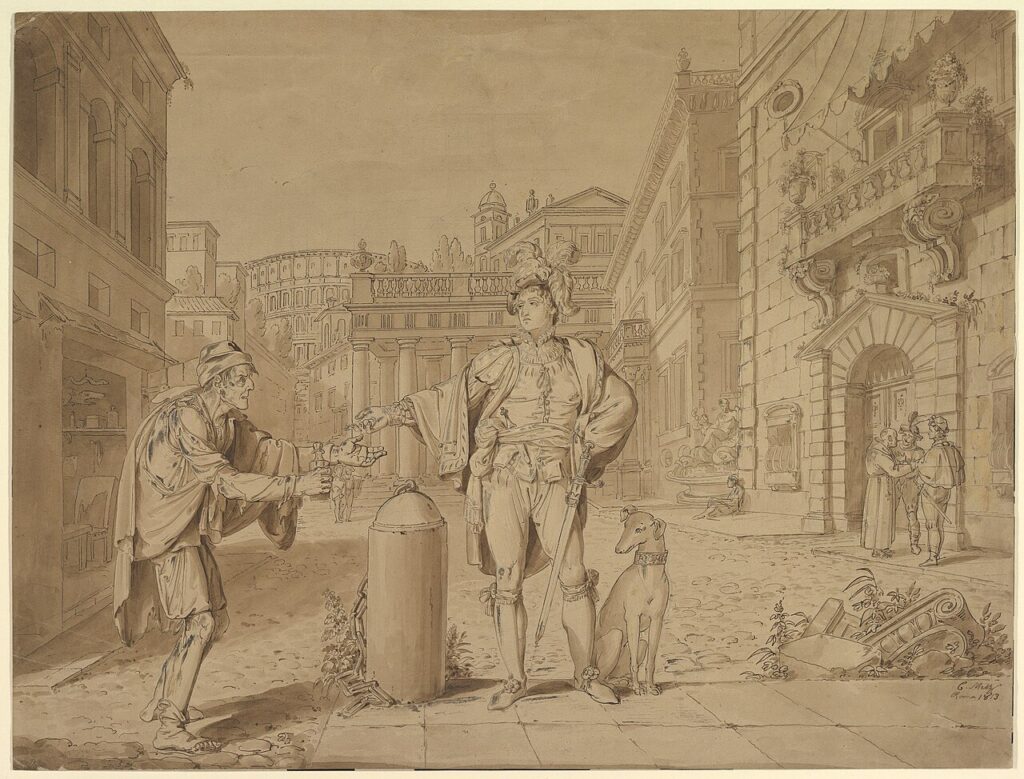
Week 2 of Murakami Fest 2025. Check out previous entries here.
The next chapter is “What exactly is the end of the year in Rome?” (ローマの歳末とはいかなるものか), and Murakami spends it discussing exactly what the title suggests. Italy, like Japan, exchanges a lot of presents at the end of the year and gets very crowded with shoppers, but mercifully there is no Christmas music. Murakami buys bottles of wine for the doormen at his apartment and sees immediate effects when they are extremely courteous for the next week.
The rest of the chapter, other than a short section at the end, is about the beggars in Italy that seem to increase greatly in number at the end of the year. Murakami highlights the different varieties of beggars (mothers with small children, old women, those who pretend to be hurt, and people who play instruments). It’s difficult to tell exactly what tone Murakami is taking here. Clearly this is something he notices because of how distinct it is from the situation in Japan, where you rarely see anyone begging on the streets. However, he does seem to make light of them in several places, asking what they do the rest of the year, noting that all the mothers with children look alike, and passing on a story from a friend that suggests they “rent” children to help with begging.
Murakami ends the chapter with a very short profile of his landlady Lynne, an Englishwoman who has married a man from Naples and is living in Rome. He brings her up after an aside noting how exhausting it is to go out in the city—just as it is in Tokyo. And then the chapter ends in a very abrupt fashion. This could be Murakami poking fun at himself, but I doubt it. Lynne is a caricature of sorts of the disaffected expat. Someone who’s been away from home forever yet is miserable in their chosen home.
The chapter isn’t really Murakami complaining in the same sense. I think instead he sees himself in a reporting mode and just happened to encounter his landlady, who is then subject to his gaze.
At any rate, here’s Murakami discussing this view that he seems to be taking:
世の中はさまざまな実際的な哲学がある。じっと街をみているとなにかしら学ぶことがある。東京の街で立ち止まってじっと何かを見ていたりしたら、変な顔をされることが多いけれど、ここローマではそういうことはない。みんなよく立ち止まって何かをじっと見ている。女房がマックス・マーラやらポリーニやらのウィンドウをじっともの欲しげに見ているあいだ、僕は通りを向いてじっと乞食の様子を観察する。ひとにはそれぞれの人生の方向性というのものがある。 (327-328)
There are countless pragmatic philosophies out there. Look hard enough at a city and you’ll learn something. If you come to a stop in Tokyo and stare at something, you get a lot of strange looks, but that’s not the case here in Rome. Everyone stops and stares at things. While my wife looks longingly at the items in the windows of Max Mara or Pollini, I turn toward the street and closely observe the beggars. Everyone has their own direction in life.
Less than stellar material, but there will be more interesting sections in the coming weeks.
